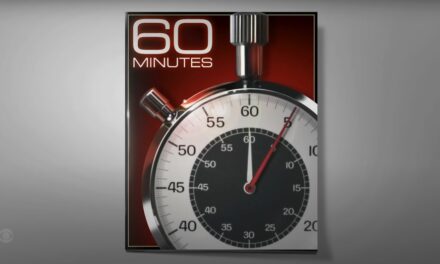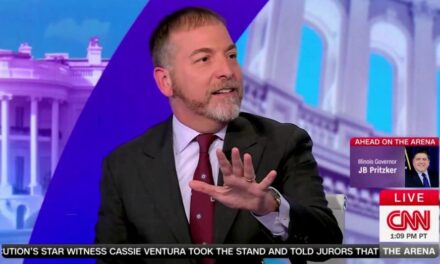In the ever-evolving landscape of American politics, social media has emerged as a powerful tool for both expression and criticism. Recently, Texas State Representative Jasmine Crockett found herself at the center of a firestorm of activity online after her comments regarding Governor Greg Abbott sparked a heated debate about accountability and sensitivity in political discourse.
Crockett, a Democrat representing Dallas, made headlines when she referred to Governor Abbott as “Governor Hot Wheels” during a public appearance. The remark was intended to critique the Republican governor’s policies and the impact they have had on the citizens of Texas, particularly those with disabilities. However, her choice of wording was not received well by many, leading to accusations of “gaslighting” from both political opponents and even some constituents who felt her comments were disrespectful.
Gaslighting, a term often used to describe a psychological manipulation technique that leads victims to question their reality, seems an unusual choice for criticism in this context. Yet, the term has been adopted by some to describe Crockett’s original comments, arguing that her remarks trivialized the challenges faced by individuals who rely on wheelchairs and similar mobility aids.
The incident ignited a social media frenzy, with various users taking to platforms like Twitter and Facebook to voice their opinions. Supporters of Governor Abbott were quick to condemn Crockett’s remarks, framing them as an example of insensitive and reckless political rhetoric. Meanwhile, advocates for people with disabilities expressed mixed feelings, with some siding with Crockett, viewing her comments as a lighter take on serious issues, while others felt they undermined real discussions about accessibility and representation.
Many Twitter users shared their frustrations, with some calling Crockett’s remarks “disrespectful” and questioning if it was appropriate for a public figure to use someone’s disability as a punchline in a political jab. One user wrote, “Political debates should focus on policy and not personal attacks. Calling him ‘Governor Hot Wheels’ isn’t acting mature.”
On the flip side, Crockett’s supporters argue that she was merely using humor as a rhetorical device to draw attention to Abbott’s record on disability rights and accessibility. They argue that humor can effectively engage audiences in serious topics that often go overlooked. One supporter stated, “Crockett’s words should be seen as a reflection of her frustration with Abbott’s disregard for disabled Texans rather than a direct attack. Context matters!”
This controversy raises broader questions about the standards of civility in political discourse. As public figures navigate their goals to incite change and express dissent against their political opponents, the line between humor and disrespect often blurs. How politicians choose to deliver their messages can have significant implications, influencing public perception and discourse.
The term “gaslighting” itself has gained traction in recent years, particularly in the context of discussions about accountability among public figures. Critics of both political parties often use it to describe situations where the truth is obscured or manipulated, leaving constituents feeling confused and unacknowledged. In the case of Crockett’s remarks, some critics claimed that her insistence on using humor as a political tool represents a form of gaslighting directed at those who are affected by Abbott’s polices.
Governor Abbott’s camp responded to the uproar by emphasizing the importance of discussing serious issues with dignity and respect. A spokesperson for the governor stated, “Political discourse should uplift the conversation, especially when it pertains to individuals with disabilities who face real challenges every day. Insensitive mockery does not serve any productive purpose.”
In the age of social media, it is not uncommon for political statements to result in swift and sometimes disproportionate backlash. Many who engage in online debates find themselves caught in arguments that largely serve to escalate tensions rather than foster constructive dialogue. The focus quickly shifts from the policies being debated to the individuals making the comments, effectively drowning out substantive discussions.
This particular incident highlights how quickly a political comment can backfire, regardless of the intended message. For many, the challenge lies not only in articulating views about policies but also in navigating the cultural sensitivities that accompany public discussions about disability and marginalization. Every statement carries the risk of misinterpretation and potential fallout, which places considerable pressure on representatives and their communications teams.
Crockett, previously known for her impassioned speeches and advocacy on behalf of marginalized communities, now faces the challenge of reconciling her message with the backlash that has ensued. In follow-up statements, she clarified her intent, stressing that her remarks were aimed at garnering attention for the issues that Texas faces under Abbott’s leadership, particularly for disabled citizens who has felt marginalized in state policy decisions.
With the midterm elections approaching, tensions are likely to heighten as political figures grapple with how to engage their audiences authentically while navigating the intricate balance of humor, sensitivity, and political challenge. For Crockett, this moment could serve as a learning opportunity, and a chance to reassess rhetorical strategies in engaging with serious issues in a politically charged climate.
The public outcry reflects a deeper issue: how political leaders can encourage meaningful conversations on controversial topics while simultaneously maintaining standards of respect and empathy. As dialogue around disability rights and social equity continues to evolve, it is critical for leaders to navigate these discussions with care, ensuring they uplift voices instead of silencing them.
In closing, the episode illustrates the power and pitfalls of political rhetoric in the age of social media. Comments that once might have elicited laughter can now result in backlash, and casual jabs can easily spiral into larger discussions on accountability. The challenge remains: to foster a climate where meaningful dialogue thrives over divisive exchanges and where political figures can advocate for change while remaining sensitive to those they aim to represent.
































